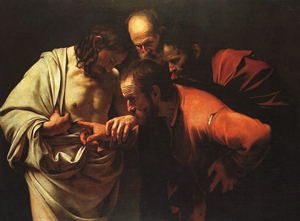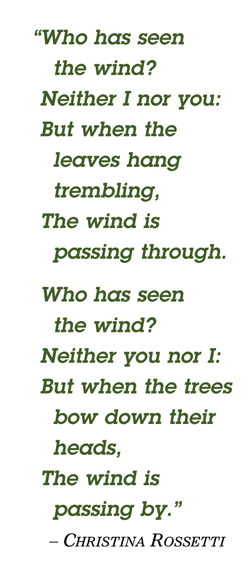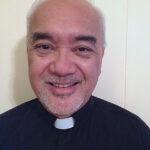Faith: In Evidence—Securely Knowing You’re in God’s Hands
John A.H. Tomoso†
A formal definition of faith is “the theological virtue defined as secure belief in God and a trusting acceptance of God’s will.” For Christians, this definition is not just words on a page it is a way of life. As a priest, I’ve counseled folk to understand faith is acceptance of what one cannot see but feels and experiences deep within one’s heart. It is seeing with no eyes. I know from the Christian perspective, believing is not seeing. Our life is built on the knowledge God became intimate with us, came to earth, died on a cross, rose again on the third day and then ascended back into heaven. Thus, I know God is very close to me. Perhaps God is close to you too, so close that and perhaps, within you.
Why do I believe? Is it because the “Bible tells me so”? I read about God in Scripture. I understand God became incarnate, intimate and close to me and you. I have faith this is true and I believe. Even before I was ordained in Holy Orders, I had this belief, so it is somewhat ingrained in me. From my belief, the faith I have I try to live. I’ve been tested, even had my doubts. At times in my life, even recently, my secure belief and faith has caused me to have doubts. Earlier in my life, I know there was a period where I lost my faith, asking myself “Can I trust God?” But trust as in all relationships, needs to be built and I continue to pray about having trust in God all the time.

Image courtesy Wikipedia (Public Domain)
I know many folk want to have physical proof. In the Gospel, there was Thomas—“Doubting Thomas”—one of Jesus’ twelve original disciples. Thomas told them he would not believe unless he saw Jesus and the wounds in his side, hands and feet. So, what was Jesus’ answer to him when he saw Jesus? “Have you believed me because you have seen me? Blessed are those who have not seen and yet have come to believe.” (John 20:29). Thomas helped to define faith for those of us who believe. So, faith, over time, has become a theological virtue, whereby one believes what one does not see but knows to be true.
As Christians, we are certainly secure in the feeling, experience and knowledge there is a God and there are rewards for those who continually seek God. I’ve come to know as a Christian all of this is much more than just a belief; it is security. So, Christians are secure in the knowledge when all things come to pass, they will know God and eventually see God, face-to-face.
Faith is a belief and acceptance and trust, even based on eyewitness accounts, as described in Scripture, especially in the Gospels. Emanating from faith, a sense and experience of peace is made real, that casts away frustration, doubts and fears. I know it has been this way for me. Perhaps faith and peace comes when one turns over his or her life over to God? Faith, I believe, is also the security of knowing one is firmly in God’s hands and no matter what happens, nothing will shake us from them. I’ve preached on how all things happen through God; there is a reason for everything happenning in life! So, faith is a security that what is not seen is real.
When you pray, do you tell God everything in your heart and soul? Does God talk to you, answering your prayer? Do you accept what God tells you? Do you know God’s benefits? Do you know it is God’s will and not your own will? Do you listen? Do you have faith?
In the Gospels, Jesus told the disciples and the people who gathered around him, to “have faith like a little child.” In my experience, children will accept what is asked of them and then go and do it. As Christians should we question what God wants us to do? I say, yes, we question; after all we are imperfect human beings. Ah but in faith, with belief and trust, we go ahead and do it because we believe in God, who is right here and at one with us in this life!
Finally, this faith, this belief, this trust in God is a verb. It is a verb because we have to act on what we believe; that God is real, that God’s Son, as Lord and Savior, is real. That God’s Holy Spirit is real and helps us to act. Isn’t it like a verb too? You see, God acted first and now compels us, through faith, belief and trust to act!

There is a story, from some sage in ages past, who likened faith to the wind: we cannot see the wind, we cannot hear the wind unless it blows against something, we can only feel the wind when it touches our skin or rustles our hair. Kababayan, faith is like that wind. We cannot see what we believe in, we cannot hear what we believe in unless we open our eyes to the truth but we can sure feel our faith is made real by the joy we feel and experience in our hearts and deep within our souls. In the end, we put our faith in God, who is like the wind, secure in belief and in a trusting acceptance of the One we cannot see but know is real. Like the wind, let this be the truth!
 John A. Hau’oli Tomoso† is a Priest in the Episcopal Diocese of Hawai’i and a retired Social Worker, with 42 years of licensed practice. Born and raised on Maui, he lives in Kahului with his wife Susan D. Tomoso, a retired Educator with 30 years of teaching experience.
John A. Hau’oli Tomoso† is a Priest in the Episcopal Diocese of Hawai’i and a retired Social Worker, with 42 years of licensed practice. Born and raised on Maui, he lives in Kahului with his wife Susan D. Tomoso, a retired Educator with 30 years of teaching experience.
